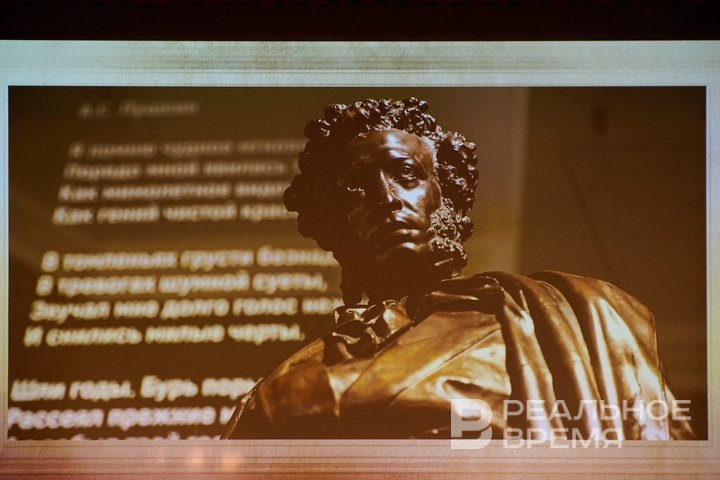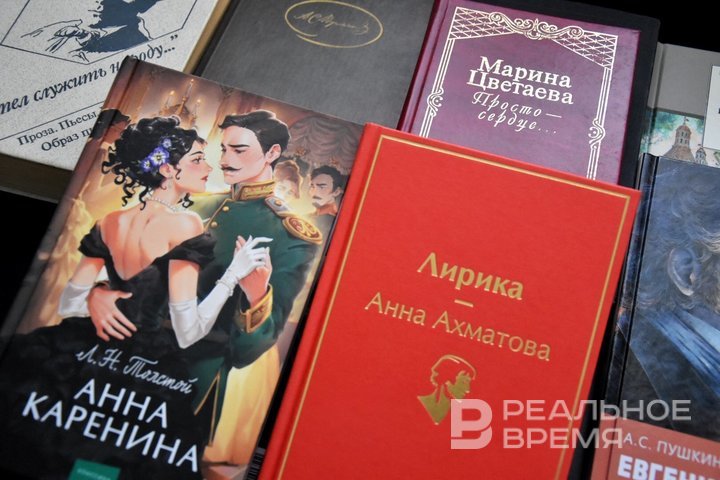The only things worse than swearing are bureaucratic jargon, filler words, and ‘birth giver’ from a deputy’s mouth
Measures to combat foul language discussed in Moscow

We have been told about the beauty of the Russian language since school. But if you listen to people’s speech on the street, in public transport, or even listen to public speeches by politicians, then there is almost nothing of that beauty. There is more and more foul language in people’s communication with each other. Should it be combated and how? Experts discussed this at a press conference in Moscow.
“Birth giver” is a striking example of foul language
The concept of “foul language” is much broader than just obscene expressions or swearing. It includes various forms of deviation from the literary norm, including jargon, slang, officialese, parasitic words, dialectisms, etc. Unlike obscene vocabulary, the latter are not prohibited for use in public places and are not considered a violation of legal norms. However, their use still goes beyond the generally accepted speech culture.
Jargon and slang are an important part of communication in different social groups. They are formed in professional communities, among people of a certain age who are united by a hobby or common activity. Many words and expressions that arose in a narrow circle, over time, become commonly used. Thus, the concepts of “hack,” “loser,” “party” or “hang out” have long gone beyond slang communities and have taken root in everyday speech.
“The use of so-called low-brow vocabulary in public space by government officials and officials often looks more terrifying and inappropriate than the swearing that we can hear in non-public places. For example, when a deputy, addressing female citizens of the Russian Federation, uses the word “birth giver” (mother). This is a clear example of the use of obscene language. Although we understand perfectly well that formally he did not violate anything,” said Konstantin Derevyanko, Deputy Chairman of the Council under the President of the Russian Federation for the Implementation of State Policy in the Sphere of Support of the Russian Language and Languages of the Peoples of Russia, head of the portal Gramota.ru.

“Officialisms and filler words are a big threat to our language”
Another matter is obscene vocabulary, or, as it is also called, swearing. In the Russian language, the basis of such a dictionary is only a few roots, but on their basis a vast layer of rude, vulgar expressions is built. Their use not only contradicts the norms of public behaviour, but also falls under the legal restrictions established by the legislation of the Russian Federation. The ban on the use of obscene language is in effect in the media, public speeches and other official contexts. In this regard, the state already regulates public space and protects it from the use of obscene language. Therefore, Derevyanko sees the main problem here not in the use of obscene language:
“Official jargon and filler words are a greater threat to our language and our society than obscene language in inappropriate situations. The latter is a matter of culture.”
In addition, euphemisms derived from obscene words have become quite ingrained in the language. The most common of them is “pancake.” According to Derevyanko, such expressions should be considered inappropriate. In general, the appropriateness and inappropriateness of obscene expressions or any abusive language is a pressing issue and causes debate. In particular, one cannot fail to mention the Russian classics Alexander Pushkin or Sergey Yesenin, in whose works one can find obscene language.
“Obscene language acquires an emotional and evaluative component. Therefore, the criterion of appropriateness is important. Where it is possible, including in fiction, to strengthen the emotional-evaluative component, this is considered appropriate. In addition, fiction is not an ordinary text. It differs from everyday, business texts and texts in the media. Therefore, the artistic fabric can contribute to the appearance of such words. For example, if the author wants to characterize a character through speech and show his general level of culture, personality traits, etc. But this is an exception,” said Andrey Shcherbakov, Deputy Dean of the Philological Faculty of the A. Pushkin State Institute of the Russian Language.

In addition, in modern fiction, the legislation clearly establishes restrictions on texts with obscene language. Such books are marked 18+ and have a disclaimer that the book contains obscene language.
“Fight for” or “fight against”?
Obscene expressions are traditionally perceived as a violation of moral, ethical and religious norms. The Church views foul language as spiritual decay, equating it with the sin of licentiousness and loss of self-control. In society, such words cause a negative reaction, being associated with aggression, bad manners and disregard for generally accepted rules of communication. But if obscene language contradicts so many norms, why does it continue to exist, and attempts to eradicate it remain unsuccessful? The answer lies in the very nature of language and its variability. Historically, obscene words had a sacred meaning. In the pre-Christian era, they could be used in ritual contexts and were not everyday speech. Later, with the establishment of Christian morality, everything related to physiology and sexuality was strictly prohibited, and the words denoting these phenomena acquired a negative connotation.
“Obscene and obscene vocabulary was taboo for religious, mystical and political reasons. It was a forbidden part of the language not only because of the rules of good manners, but also because of the belief in the power of words, because of the possibility of influencing people. But today's trends show that obscene language from taboo vocabulary is penetrating into the public space,” said Konstantin Derevyanko.
Shcherbakov also spoke about the power of words, in particular, he noted the meaning of the word “fight” in relation to foul language. “You can fight against something, you can fight with someone or something, and you can fight for something. Against social inequality or for freedom and independence. But when we talk about language and speech, the words ‘fight’ and ‘fight’ if they are applicable, then only in one model — ‘fight for.’ Fight for literacy, fight for wealth and diversity, fight for the expressiveness of our speech. Fight in a positive way,” explained Andrey Shcherbakov.

According to Derevyanko, social networks and the Internet as a whole contribute to the normalization of foul language. Therefore, he suggests thinking about how to regulate social networks and bloggers, many of whom today can be compared in terms of coverage with traditional media. Although in 2020, the State Duma of the Russian Federation has already passed a law that obliges social networks not to allow the publication of materials with obscene language. But, apparently, this law does not work effectively.
Derevyanko also noted that gender boundaries are now being erased in the use of swear words and foul language. “If earlier it was mainly men who used obscene language in speech, now women actively use it. Perhaps this is due to the fact that in this way gender inequality is leveled out,” Derevyanko added.
“Obscene language is an indicator that the level of aggression in our society is quite high”
Today, many psychologists consider obscene language not just a rude form of expressing emotions, but a kind of tool for relieving stress. In critical moments, obscene words can act as an emotional “discharger” helping a person express shock, anger, pain or joy. Research shows that swearing activates different areas of the brain than ordinary words, which makes it especially effective in stressful situations.
“Obscene, abusive, vulgar language is an indicator that the level of aggression in our society is quite high. The use of many obscene words is an attempt to offend, insult or humiliate a person. Therefore, language and social and speech practice tell us that something is not going well in our society, since the level of aggression and specifically speech aggression is increasing,” said Andrey Shcherbakov

However, in modern society, the problem lies not so much in the very existence of obscene language, but in its thoughtless dissemination. If for an adult the use of obscene words remains rather an exception, conscious and situational, then for teenagers everything is different. Among young people, swearing is often used without reference to context, becoming an ordinary part of speech. For many, this is an attempt to look older, bolder, more confident, but this style of communication can lead to a decrease in speech culture and the ability to accurately express thoughts without using rude expressions.
Fashion for literacy
Attempts to combat obscene language with the help of prohibitions are ineffective. Derevyanko noted that there is no point in fighting foul language. Only the education of speech culture, the development of a rich vocabulary and the understanding that emotions can be expressed in different ways can have a long-term effect. “The key vector in the fight against foul language is the formation and development of a speech culture in society and among the younger generation. And in general, it is necessary to develop a fashion for literacy in society,” said Konstantin Derevyanko. The main thing is the understanding that language is not just a means of communication, but also an indicator of a person's level of culture.
Derevyanko suggests building a framework where foul language is acceptable, appropriate and where the state cannot intrude. “The state is not able to enter into a personal linguistic space. These attempts will cause irritation or ridicule,” Derevyanko said. But he believes that it is possible and necessary to regulate the official information field.

Derevyanko also suggests conducting to take “systemic actions to improve speech culture and literacy among the population and the younger generation.” He includes the development of the speech apparatus of children and schoolchildren, new approaches to studying language and literature at school among such actions. Derevyanko also added actions that will help instil a love of reading, as well as fill the educational space with relevant language material. Andrey Shcherbakov added to this list the popularization of fiction without foul language and the demonstration of his own experience of cultural speech.
“Having formed a fashion for good literate speech, we will be able to effectively counteract the penetration of foul language,” summed up Konstantin Derevyanko. At the same time, all the speakers noted that when something heavy falls on your foot, it is difficult to do without swearing.
Ekaterina Petrova is a book reviewer of Realnoe Vremya online newspaper, the author of Poppy Seed Muffins Telegram channel and founder of the first online subscription book club Makulatura.